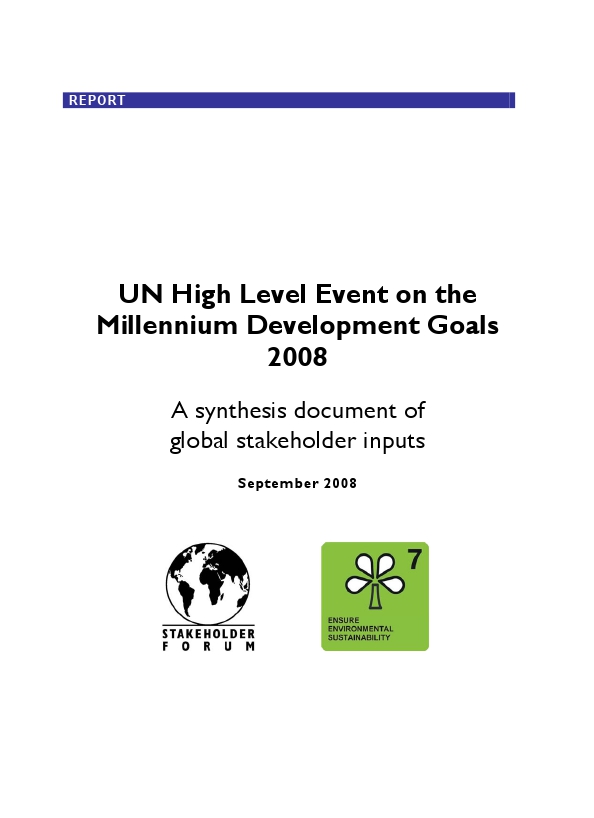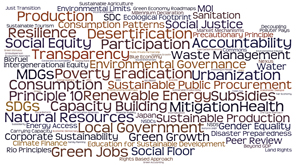The Implications of the SDGs for Developed Countries
 The Sustainable Development Goals (SDGs) are intended to be universal in the sense of embodying a universally shared common global vision of progress towards a safe, just and sustainable space for all human beings to thrive on the planet. They reflect the moral principles that no-one and no country should be left behind, and that everyone and every country should be regarded as having a common responsibility for playing their part in delivering the global vision. In general terms, all of the goals have therefore been conceived as applying both as ambitions and as challenges to all countries. All of the goals and targets contain important messages and challenges for developed and developing countries alike.
The Sustainable Development Goals (SDGs) are intended to be universal in the sense of embodying a universally shared common global vision of progress towards a safe, just and sustainable space for all human beings to thrive on the planet. They reflect the moral principles that no-one and no country should be left behind, and that everyone and every country should be regarded as having a common responsibility for playing their part in delivering the global vision. In general terms, all of the goals have therefore been conceived as applying both as ambitions and as challenges to all countries. All of the goals and targets contain important messages and challenges for developed and developing countries alike.
Stakeholder Forum was recently commissioned by the United Nations Development Programme (UNDP) to undertake a rapid new study to better understand the implications of the Sustainable Development Goals (SDGs) for Developed Countries, since this aspect has tended to receive less attention in the international discussions. The report of the study is now published.
The study introduces a new methodology for assessing the degree of both transformational challenge and transformational change represented by each of the different SDGs (and their respective targets) within differing national circumstances.
A first application of this methodology identifies the goals of sustainable consumption and production (SDG 12), sustainable energy (SDG 7) and combating climate change (SDG 13) as the three most transformational challenges facing developed countries – and as being the challenges on which the world at large needs to see the developed world place a strong emphasis for action so as to relieve the overall anthropogenic pressures on the planet and its natural systems. Other goals involving significant transformational change in developed countries include the need to achieve more sustainable economies and growth pathways, the goal of greater equality, and the goals to achieve better protection of the oceans and of terrestrial ecosystems.
Developed countries also need to continue to assist the development process in developing countries, particularly the least developed countries and to deliver on their long-standing pledges to commit 0.7% of their Gross National Income (GNI) to official development assistance programmes. But the attention which the SDGs and the international development agenda rightly place on this responsibility of the developed world should not divert attention from the equally important responsibility of the developed world to reduce their global footprint and the impact they impose on the rest of the world through unsustainable patterns of consumption and production and lifestyles.
The methodology proposed is described in some detail so that it could be taken up in any country or groups of countries and used to assess the extent of the challenge represented by the different SDGs in different contexts. It is hoped that it could in this way become a useful tool for countries at all levels of development as they make their plans for SDGs implementation. It could help them to analyse their current situation in relation to each of the goals and targets, to identify which of the goals and targets will represent the biggest transformational opportunities for them, and thence determine their own emphases for action toward achievement of the SDGs.
The report can be accessed and downloaded here
Please contact Farooq Ullah for additional information about this study – [email protected]



